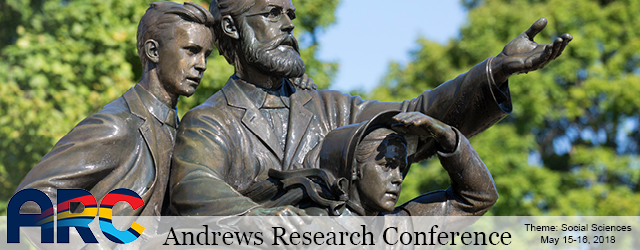Digital Literacy Skills and Massive Open Online Courses Participation by Lecturers in Babcock University, Nigeria
Presenter Status
Lecturer, Information Resources Management Department
Second Presenter Status
Lecturer, Information Resources Management Department
Third Presenter Status
Lecturer, Information Resources Management Department
Fourth Presenter Status
Lecturer, Information Resources Management Department
Presentation Type
Oral presentation
Presentation Abstract
Massive Open Online Courses (MOOCs) promote open access to learning materials, thereby, providing learning opportunities for professional development and lifelong learning. University lecturers, especially in developing countries can leverage on the opportunities presented by MOOCs for skills acquisition. Considering that studies have highlighted digital literacy skills as a determinant of MOOC participation, this study examined lecturers’ digital literacy skills and their participation in MOOCs. The study adopted a survey research design while the population of study comprised 110 lecturers from the Management and Social Sciences discipline at Babcock University, Nigeria. A self-developed questionnaire was used as an instrument for data collection from the entire population. Data collected were subjected to analysis using simple percentages, mean score and logistic regression. Findings from the study revealed that on the overall, lecturers possessed advanced digital literacy skills ( = 3.60). Regarding the enrolment for MOOC, just 15% of the respondents had enrolled for at least a course on any of the MOOC website. Additionally, only 20% of those that enrolled for at least a course on the MOOC website indicated they actively participate in the courses. Lastly, the study revealed no statistically significant influence of digital literacy skill on lecturers' enrolment in MOOC (X2=2.35, p>0.05). Conclusively, while this study has revealed that lecturers’ digital literacy skills do not influence their MOOC participation, it also revealed that lecturers are not yet availing themselves of the opportunities for skills acquisition and knowledge update made possible by MOOCs.
Biographical Sketch
Opeyemi is currently a lecturer at the Information Resources Management Department, Babcock University, Nigeria. She obtained her PhD in Information Resources Management with specialisation in Business Information Management from Babcock University, Nigeria. She has published in both local and international academic journals.
Presentation
Digital Literacy Skills and Massive Open Online Courses Participation by Lecturers in Babcock University, Nigeria
Massive Open Online Courses (MOOCs) promote open access to learning materials, thereby, providing learning opportunities for professional development and lifelong learning. University lecturers, especially in developing countries can leverage on the opportunities presented by MOOCs for skills acquisition. Considering that studies have highlighted digital literacy skills as a determinant of MOOC participation, this study examined lecturers’ digital literacy skills and their participation in MOOCs. The study adopted a survey research design while the population of study comprised 110 lecturers from the Management and Social Sciences discipline at Babcock University, Nigeria. A self-developed questionnaire was used as an instrument for data collection from the entire population. Data collected were subjected to analysis using simple percentages, mean score and logistic regression. Findings from the study revealed that on the overall, lecturers possessed advanced digital literacy skills ( = 3.60). Regarding the enrolment for MOOC, just 15% of the respondents had enrolled for at least a course on any of the MOOC website. Additionally, only 20% of those that enrolled for at least a course on the MOOC website indicated they actively participate in the courses. Lastly, the study revealed no statistically significant influence of digital literacy skill on lecturers' enrolment in MOOC (X2=2.35, p>0.05). Conclusively, while this study has revealed that lecturers’ digital literacy skills do not influence their MOOC participation, it also revealed that lecturers are not yet availing themselves of the opportunities for skills acquisition and knowledge update made possible by MOOCs.



